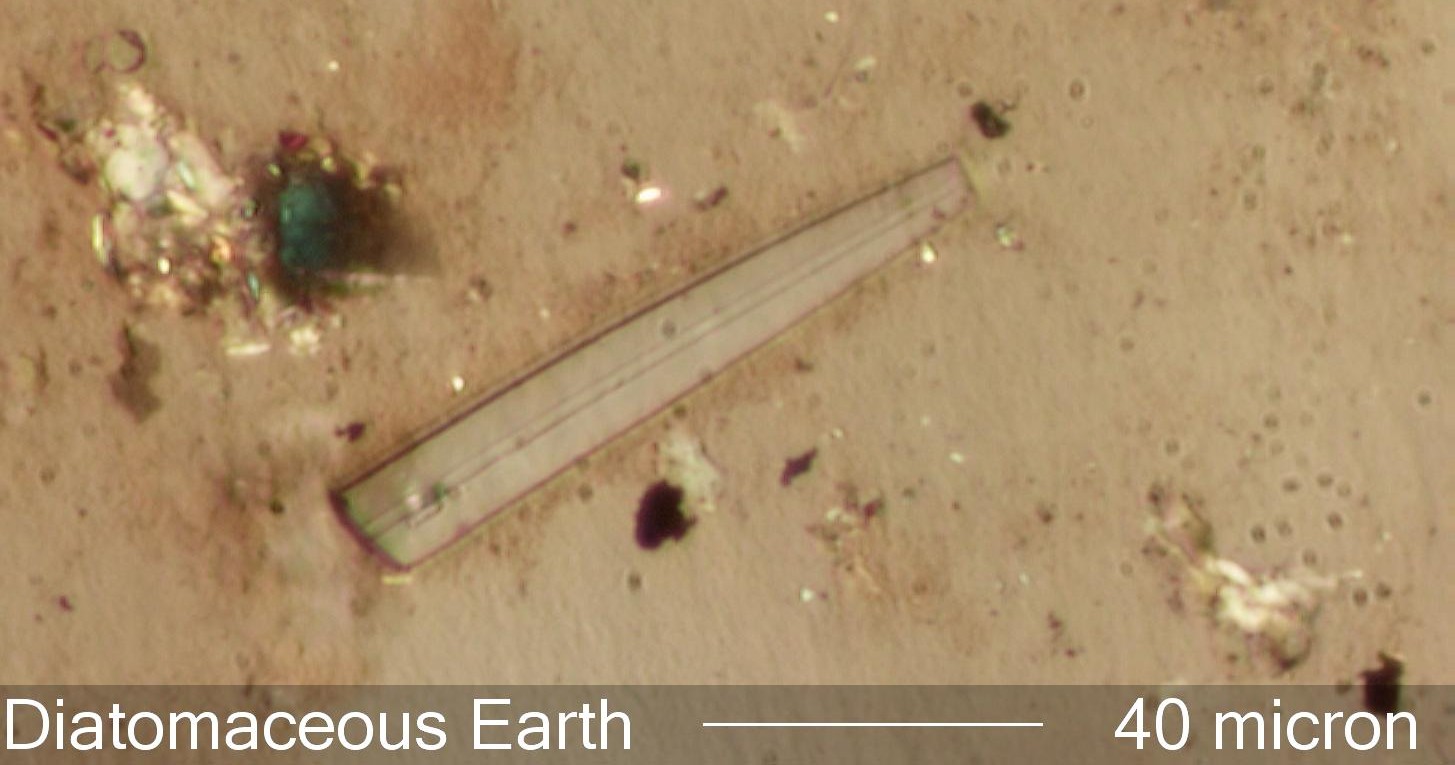Sponge Spicule
This fragment of an opaline silica sponge spicule is from an oil sample collected from a 8400kVA transformer. This transformer was reportedly gas blanketed and sealed. The presence of this sponge spicule and diatoms would suggest that they are from a diatomaceous earth filter used to clean the oil.
Transmitted Oblique Off Crossed Circular Polarized Light
(Identification Key for Freshwater Sponge Spicules)
Wilding, L.P. and L. R. Drees, "Distribution and implications of sponge spicules in surficial deposits in Ohio", THE OHIO JOURNAL OF SCIENCE, vol. 68, no. 2, pp. 92-99, 1968.
(Transport Mechanisms for Spicules far from Lakes)
Kratz, T.K., K.E. Webster, C.J. Bowser, J.J. Magnuson, and B.J. Benson, "The influence of landscape position on lakes in northern Wisconsin", FRESHWATER BIOLOGY, vol. 37, pp209-217, 1997.
(Environmental Factors Favoring Production of Sponge Spicules)
Definition/Function:
Significance in the Environment:
Characteristic Features:
The low refractive index, less than 1.49, its colorless transparence, smooth-tapered shape, and the hollow core are characteristic of this type of sponge spicule.Associated Particles:
References:
Pennak, Robert W., FRESH-WATER INVERTEBRATES OF THE UNITED STATES, 2nd Ed., Wiley Interscience, pp. 80-98, 1978.(Identification Key for Freshwater Sponge Spicules)
Wilding, L.P. and L. R. Drees, "Distribution and implications of sponge spicules in surficial deposits in Ohio", THE OHIO JOURNAL OF SCIENCE, vol. 68, no. 2, pp. 92-99, 1968.
(Transport Mechanisms for Spicules far from Lakes)
Kratz, T.K., K.E. Webster, C.J. Bowser, J.J. Magnuson, and B.J. Benson, "The influence of landscape position on lakes in northern Wisconsin", FRESHWATER BIOLOGY, vol. 37, pp209-217, 1997.
(Environmental Factors Favoring Production of Sponge Spicules)


